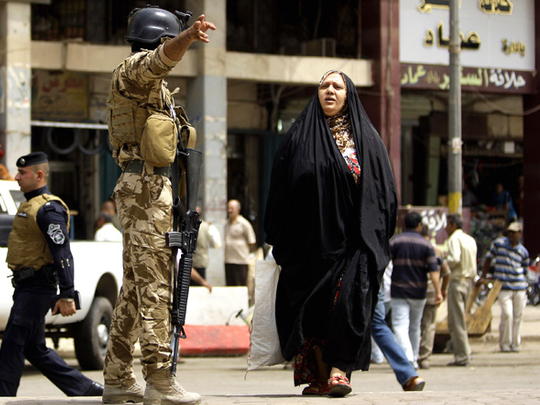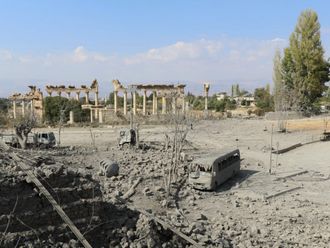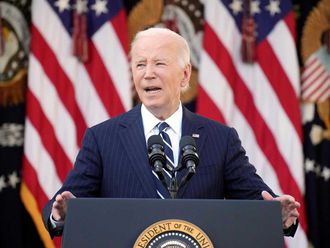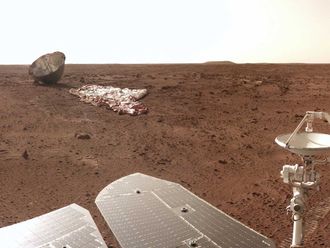
Dubai: Saudi Arabia's initiative to resolve a power vacuum in Iraq was met with mixed reactions.
Shiites were mainly sceptical that it was a bid to ensure Sunni power in Iraq.
Iraq's Shiite alliance turned down Saudi Arabia's offer on Saturday to host all-party talks to resolve months of political stalemate because it said it was confident a deal could be struck in Baghdad on a new government.
Iraq has been without a new government since the March 7 election that failed to produce a clear winner, leaving Shiite, Sunni Arab and Kurdish politicians jockeying for power and position.
Saudi Arabia's King Abdullah Bin Abdul Aziz had invited Iraq's parties to talks in Riyadh under the auspices of the 22-nation Arab League after the annual Haj ending around November 18, the Saudi state news agency SPA reported on Saturday.
"Everyone believes that you are at a crossroads that requires doing the utmost efforts to unite, get over traumas and conflicts, and get rid of sectarianism," SPA quoted King Abdullah as saying in comments addressed to Iraqi leaders.
Saudi Arabia has a history of brokering deals among contending parties. Saudi Arabia succeeded in forging the Taif Accord that brought an end to the 15-year civil war in Lebanon in 1985.
Iraqiya, the cross-sectarian Sunni-backed political bloc that received the most votes in the election but failed to win an outright majority in parliament, welcomed the Saudi initiative, saying Turkey and Iran should also be invited.
The National Alliance, a merger of Iraq's Shiite-led blocs, including that of incumbent Prime Minister Nouri Al Maliki's coalition, said a deal in Baghdad was close after the highest court ordered parliament to resume sessions last week.
"We are confident the representatives of the Iraqi people are able... to reach a deal to form a national partnership government," said legislator Hassan Al Sunaid, reading from a statement that he said came from the Shiite National Alliance.
"Though we express our appreciation to Saudi Arabia for its concern about the situation in Iraq and its willingness to provide support, we would like to confirm Iraqi leaders are continuing ... their meetings to reach a national consensus."
Last chance
Al Sunaid, a senior member of Al Maliki's bloc, said the statement was supported by the Kurdish Alliance, which has 57 seats in parliament and is being wooed by Al Maliki's camp to form a coalition government.
Saleh Al Mutlaq, an ex-MP and head of the Iraqi Front for National Dialogue who is in self-exile in Amman, Jordan, told Gulf News the kingdom's initiative will ensure that Iraqis were not at the mercy of their non-Arab neighbours.
He said all of Iraq's neighbours including Iran must support the initiative as it would be the last chance to prevent the breakup of the country.
He said, "The current sectarian divide is getting deeper and our people require us to do more for a better future."
Al Mutlaq, who was barred from contesting in the recent election because of his suspected links with the Al Baath Party of the former regime, said the Iraqi people want to see its political leaders achieve a solution that will lead to the formation of a new government.
But Al Mutlaq, a member of the Iraqiya Bloc which marginally won the election, did not expect a deal before the end of the pilgrimage season.
He said the Iraqia, which won 91 seat of the 325-member parliament, is ready to offer considerable concessions in the Riyadh meetings to resolve the stalemate in the country.
With inputs from Reuters











